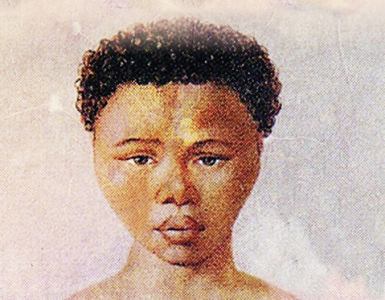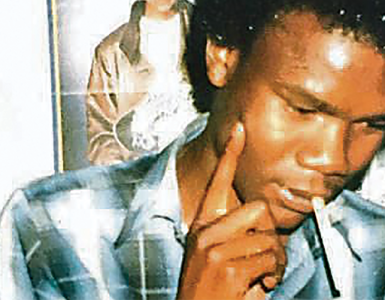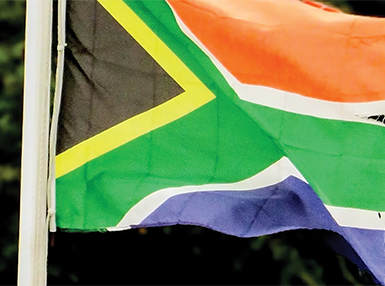UNION: The Pope faces growing dissent as 90 Catholic priests, scholars ask Church leaders to oppose same-sex blessings…
By Tyler Arnold
Washington, D.C – A group of 90 Catholic priests, scholars, and authors are asking bishops and cardinals to reject a Vatican declaration that approved the pastoral, nonliturgical blessings of same-sex couples and to refuse to implement it within their dioceses.
The coalition signed a “Filial Appeal” addressed to the leaders of the Church, which asks them to forbid any blessings of same-sex couples within their jurisdictions and to directly ask Pope Francis to withdraw the document. The signatories claim that the declaration contradicts “both Scripture and the universal and uninterrupted Tradition of the Church” and “produces a serious scandal.”
“It is definitely not justifiable, especially for a cardinal or a bishop, to remain silent, since the scandal that has already occurred is serious and public, and if it is not stopped, it is bound to be more and more amplified,” the letter reads. “The threat does not become smaller but more serious, since the error comes from the Roman See and is destined to scandalise all the faithful.”
The Vatican has justified the declaration by emphasising a distinction between liturgical blessings, which are not available to same-sex couples, and pastoral blessings, which are now allowed. The scholars in the letter are contesting the legitimacy of this distinction as a means of justifying the blessings.
Globally, bishops have been divided on how to implement the declaration or whether to implement it at all.
The Vatican declaration, which was published by the Dicastery for the Doctrine of the Faith on December 18 last year, emphasises a distinction betweBut Catholic bishops in some countries, particularly in Africa, expressed dissent over the December 18 declaration, known by its Latin title Fiducia Supplicans (Supplicating Trust).
A fortnight later, in a move to pacify a ‘dissenting African bloc’, the Vatican on January 4 moved to calm the Catholic bishops over the approval of blessings for same-sex couples, assuring them the measure was not “heretical” or “blasphemous”.
In a five-page statement, the Vatican’s doctrinal office had acknowledged that such blessings could be “imprudent” in some countries where people who receive them might become targets of violence, or risk prison or even death.
Liturgical blessings, the declaration asserts, are not permitted for same-sex couples, because such a blessing “requires that what is blessed be conformed to God’s will.” The Church does not have the power to confer such blessings on same-sex couples, because it would “offer a form of moral legitimacy to a union that presumes to be a marriage or to an extra-marital sexual practice,” the declaration states.
However, the declaration claims that pastoral blessings are different. It states that pastoral blessings “are meant for everyone” and “no one is to be excluded from them.” It states that priests can provide pastoral blessings for same-sex couples “without officially validating their status or changing in any way the Church’s perennial teaching on marriage.” Such blessings, it adds, cannot “be performed with any clothing, gestures, or words that are proper to a wedding.”
“Rites and prayers that could create confusion between what constitutes marriage — which is the ‘exclusive, stable, and indissoluble union between a man and a woman, naturally open to the generation of children’ — and what contradicts it are inadmissible,” the document reads.
Why do these scholars oppose the declaration?
The scholars voicing objections to the declaration say in their letter that the attempt to create a distinction between liturgical and pastoral blessings is “impossible.”
Pastoral care, they argue “always presupposes a theory and … if pastoral care performs something that does not correspond to the doctrine, what is actually being proposed is a different doctrine.”
Regardless of whether the blessing is liturgical or pastoral, the letter claims that a blessing has an “immediate communicative effect … [that] always implies an approval of what is being blessed” even if the declaration claims that is not the intent. It argues that the declaration has already been interpreted as approval “by those few episcopates and prelates that for decades have been openly advocating a change in the doctrine on sexual morality” and by much of the public.
“In practice, the faithful will not even be aware of the subtle theoretical justifications introduced by the declaration…,” the filial appeal continues. “The message that is effectively launched, and that the people of God, and the entire world, will inevitably register and are already registering is that: The Catholic Church has finally evolved, and now accepts homosexual unions, and, more generally, extramarital unions.”
They add that the traditional doctrines on sexual morality “must be considered infallible” and that “this is a doctrine of the natural law, which does not allow for any change.”
“In this difficult moment, a clear word of truth would be the best example of your faithful and courageous dedication to the people of God entrusted to you, a sign of fidelity to the true mission of the papacy and at the same time the best help for the pope himself, an eloquent ‘fraternal correction,’ which he urgently needs in this last and most critical period of his pontificate and probably of his life,” the signatories implore the bishops and cardinals.
Who has signed the document so far?
The 90 signatories include Catholic priests, scholars, and authors from across North America, South America, Africa, Europe, and Australia. The group aims to increase the number of signatories by a February 15 deadline and intends to publish a larger, more comprehensive list by February 17.
Among the signatories are Thomas Ward, president of the John Paul II Academy on Human Life and the Family; Michael Pakaluk, professor of ethics and social philosophy at the Catholic University of America and Father Robert Sirico, president of the St John Henry Newman Institute and founder of the Acton Institute.
Other signatories include German sociologist and author Gabriele Kuby, César Félix Sánchez Martínez, professor of philosophy at the Universidad Nacional de San Agustín, Perú; The Cornerstone Forum President Gil Bailie and Father Gerald Murray, pastor of the Church of the Holy Family in New York City.
The letter has been published in several languages, including English, Spanish, Italian, French, and German.
Bishops around the world have taken a variety of different approaches to the declaration. In some cases, bishops have taken a broad view of the declaration, and in others, they have taken a very narrow view. Some bishops, including numerous bishops’ conferences, have refused to implement it. – CNA





























